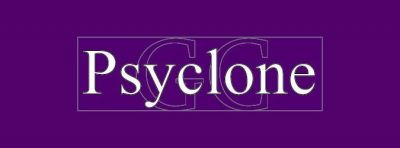
The longest running departmental newsletter on campus. Written by students.
Greetings,
Hello everyone! We hope that the fall semester has gone well for all of you. I am Andrew Smucker, a junior Psychology major. Within psychology, I have enjoyed learning about human development across the lifespan.
So far this year, we have had a forum getting to know the psychology professors, and plan to have a couple more. Each semester, the psychology department offers four forums, which include speakers and snacks. These forums will be looking at ways that psychology can be used in a job; they are also a good way to learn more about the various applications of psychology across different fields.
Forum Speakers:
Jonah Hochstetler is a recent graduate of Goshen College, class of 2021, studying psychology and business. At the moment, he is a TUL coach at Goshen Health. TUL stands for The Uncommon Leader. In this job, he helps lead teams of Goshen Hospital colleagues in process improvement, to help solve problems, and make meaningful process changes.
During the forum he presented in, we learned about his job and the culture at Goshen Health. This is one of always improving, with the system being set up to encourage positive changes. He also talked about his job as a TUL coach. In this position, he mediates discussions over improvements; giving a unbiased opinion. He offers a neutral perspective that gives insight to the issue.
Denise Reesor is a School Psychologist at Elkhart County Special Education Cooperative. She graduated from Valparaiso University in 2019 with a Masters of Educational Specialist, which is in the field of school psychology. During the forum, she presented, with her colleague Amber, about graduate school. They informed us about how to make the decision of graduate school, and what considerations are made with this decision.
Alumni Updates:
Jonah Hochstetler is a recent graduate of Goshen college, class of 2021. Jonah had this to say about his work as a TUL Coach:
“I am a TUL Coach for Goshen Health. The TUL Program stands for The Uncommon Leader which is the mindset that every Colleague has a voice to promote positive change for Colleagues and patients throughout the organization. I work with Colleagues in various departments to help facilitate projects and make meaningful change. We use the A3 problem-solving process which is a 9-box method to problem-solving that ensures a full understanding of the problem and a carefully thought through solution. We use data to drive all process improvement efforts.
I have been in this role for a little over a year and a half and absolutely love what I do. I have the opportunity to work with Colleagues across the organization and help facilitate meaningful change. It is not my job to tell people what changes to make. Instead, I walk them through the A3 process so they can come up with a meaningful change that will work for their department. This is not only empowering for Colleagues but creates many improvements that patients may not even recognize.”
Ian Martin, a 2020 graduate, was accepted into the School Psychology program in the College of Education at the University of Oregon for this fall. It involves two years of coursework and a year-long, full-time internship. He writes, “This program interests me because of its outcomes-driven model of service delivery; the program focuses on health rather than pathology. I love data, assessment, and working with kids, so I eventually want to practice School Psychology while keeping up with current research.”
In the Research:
Have you ever wondered how to improve your studying?
The testing effect is one study technique that could help you retain more information.
“The testing effect” means “taking tests during the learning phase facilitates later retrieval from long-term memory. ” After you have learned a topic, taking a test afterwards helps you to retrieve the information. Taking these tests then helps you to understand what you missed after studying.
Combining the testing effect with normal studying and practicing of the material helps to store information in long-term memory. With the constant practice and testing back and forth, the information will be learned.
Reference:
Schwieren, J., Barenberg, J., & Dutke, S. (2017). The Testing Effect in the Psychology Classroom: A Meta-Analytic Perspective. Psychology Learning & Teaching, 16(2), 179–196. https://doi.org/10.1177/1475725717695149




